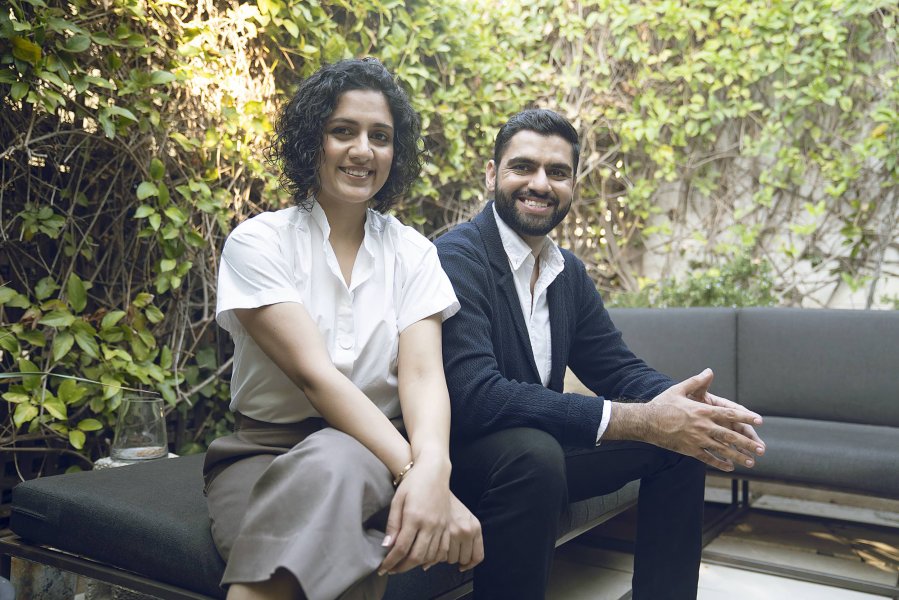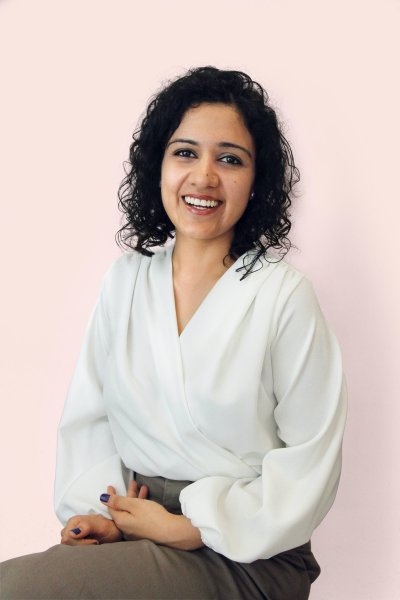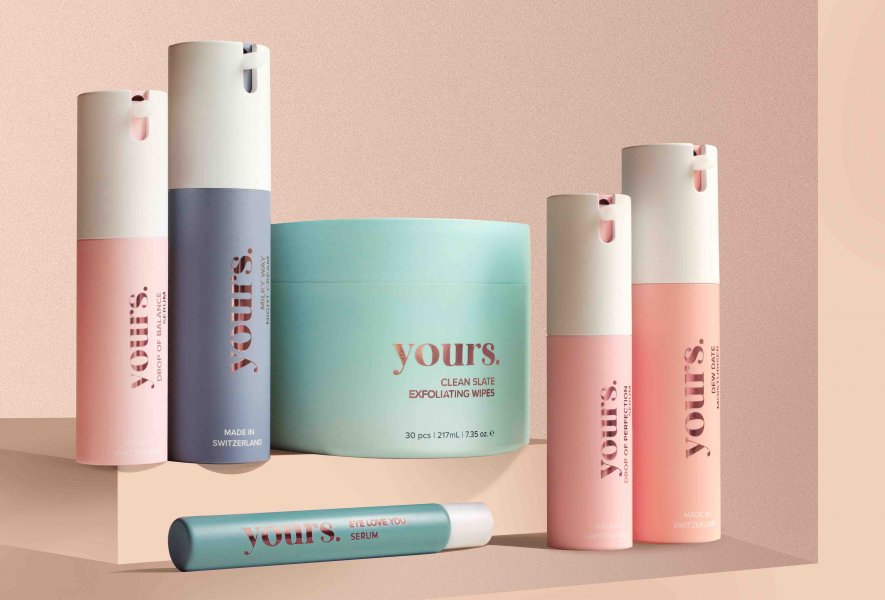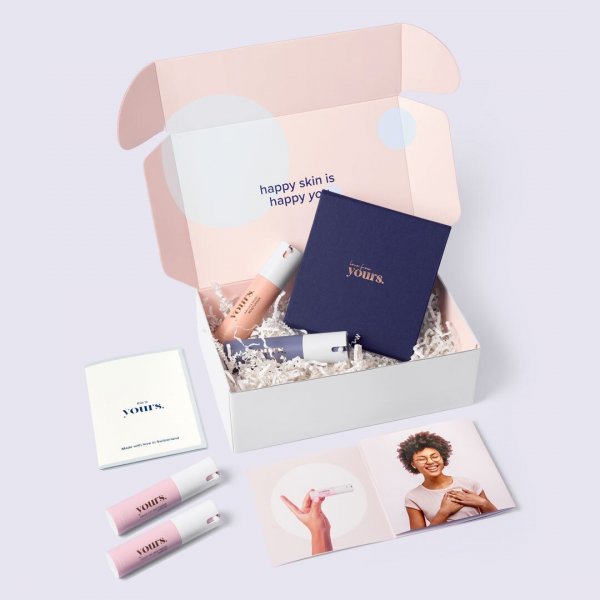Founded in 2018, Yours skincare label has become one of the most prominent homegrown beauty brands. And that’s all thanks to its personalised skincare products that eliminate the need for trial and error; not to mention its use of ethically-sourced ingredients which results in safe and clean formulations.
But behind its online skin assessments and bespoke beauty solutions is a true-blue start-up that strives to meet the gaps large beauty brands have long overlooked.
The company, founded by Navneet Kaur and Shivam Sharma, had closed a US$3.5 million seed funding round in Aug 2019 from Surge and other globally reputed VCs including Kindred Ventures (founded by Uber’s early advisor and investor Steve Jang) and Arrive—Jay-Z’s venture fund under Roc Nation.

The former Uber employees are also well-versed in the beauty and technology industries, which Yours treads the line between.
Now, as the company continues to grow with new product launches and initiatives, we speak to co-founder Navneet Kaur as she reflects on the business and what it truly means to #supportlocal.

Tell us what inspired Yours.
Back in 2017, my husband and now co-founder, Shivam Sharma began experiencing acne flare-ups due to work stress and frequent travelling. In trying to find the right skincare products for him, I realised that product discovery for skincare was broken—overwhelming, time-consuming, expensive and full of trial and error. This led to the idea of a company that could do all the heavy lifting for the consumer. With that concept in mind, I set out to build a customer-first, clean skincare brand that personalises skincare for users based on their skin type, lifestyle and environment.
I also interviewed women across various age groups and geographies, and found that many struggled to understand their skin needs too. That’s when I decided to use technology to solve the issue of trial-and-error; making skincare simple and sustainable is what Yours is all about.
What were you doing prior to Yours?
I started my career as a brand manager for a skincare brand at one of India’s largest conglomerates. During this time, I led numerous skincare product development projects and launched a range of brands.
Later, I moved on to be a part of Uber APAC’s core team in 2014, launching and scaling Uber in a time when ride-sharing and the gig economy were fairly nascent. After that, I headed the APAC strategy and operations for OFO, the bike-sharing start-up.

Is a large percentage of Yours product sales from locals?
Yes, a significant portion of our sales are from Singapore. We currently ship to Singapore, Australia, New Zealand, and the US, directly to postal addresses.
What are some of the challenges you’ve faced in helming Yours?
There are undoubtedly a lot of challenges that come with being a young start-up, and things definitely get a lot harder when you’re building a company in one of the most competitive industries in the world—beauty. There’s definitely no easy path to success!
A large challenge that I faced when creating Yours was the lack of cosmetics regulation across countries and the lack of ingredient transparency in supply chains. White labelling for instance, where brands purchase a ready-made, off-the-shelf formulation and repackage it into their own branding, was and still is rampant in the industry.
I wanted to be able to meaningfully innovate on the skincare R&D front, with safe and efficacious active ingredients and formulations that actually deliver results while remaining true to our clean beauty values.
That meant having checks and balances in place to ensure our ingredients are ethically and sustainably sourced from only suppliers we trust, and rigorous testing for safety and efficacy at both ingredient and formulation levels. It took me over a year to set the processes in place and base our lab in Switzerland to align with our values, for the creation of formulations our consumers use today.
What else?
Looking for sustainable and recyclable packaging solutions can be a challenging process too. Especially in the early stages, when we were a much smaller start-up and weren’t able to meet the minimum order quantities that suppliers sought. It took us a long time to design and procure the packaging that you see today, ensuring that it aligns with our mission of making skincare simple and sustainable.
Our airless pump bottle packaging for example, reduces product wastage and allows for easy recycling. While it has been an uphill battle, we’re making every effort to be as eco-friendly as possible, and are always exploring more sustainable options as we go!

How can Singaporeans support local businesses such as yourself?
Buy local! Whenever you’re deciding between purchasing from an international brand or a local one, choose local. For small businesses and start-ups, a purchase goes beyond just sales numbers—growth of local businesses means more jobs are created and that has a positive impact on the economy. Moreover, it’s a show of support for those particular businesses and the teams.
Standing behind local businesses publicly is another great way to show your support. This could mean engaging with their social content or even recommending the brand or products to your networks.
Do you think there is a stigma surrounding local products and if so, how can we tackle the idea that local products are inferior to international ones?
Increasingly, I think the stigma surrounding local products and brands is slowly diminishing. International brands tend to have an established presence that assures customers and gives them a sense of security. There is also often a label of prestige or cult love associated with global brands and local ones that have made it internationally.
That said, we’re seeing a real shift in the way people are approaching beauty brands. Consumers, especially younger ones, are increasingly willing to eschew the notion that bigger brand skincare means better products; instead, they go for product efficacy and brands that align with their personal values: clean beauty, cruelty-free and eco-friendliness.
In the end, it all boils down to product quality and the product-customer fit. If a local brand can solve their skin issues, that brand is what they’re going to go for.
More information about Yours available here.





